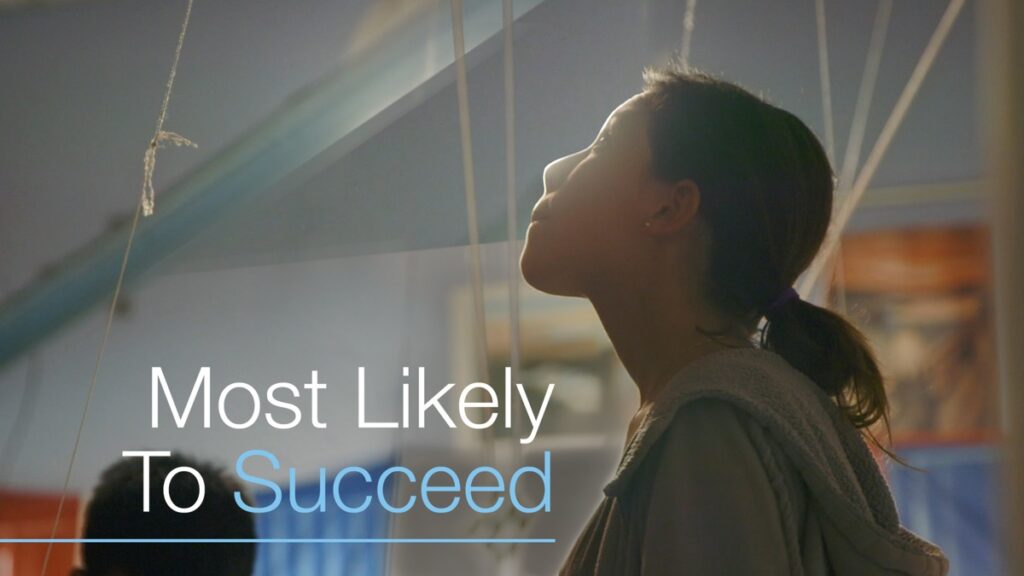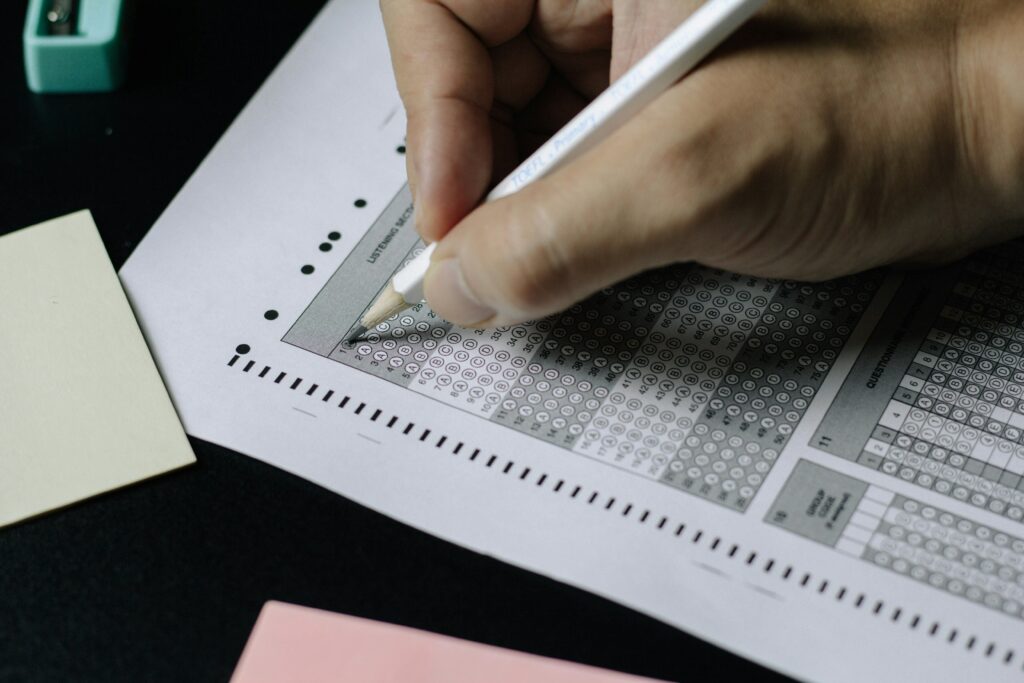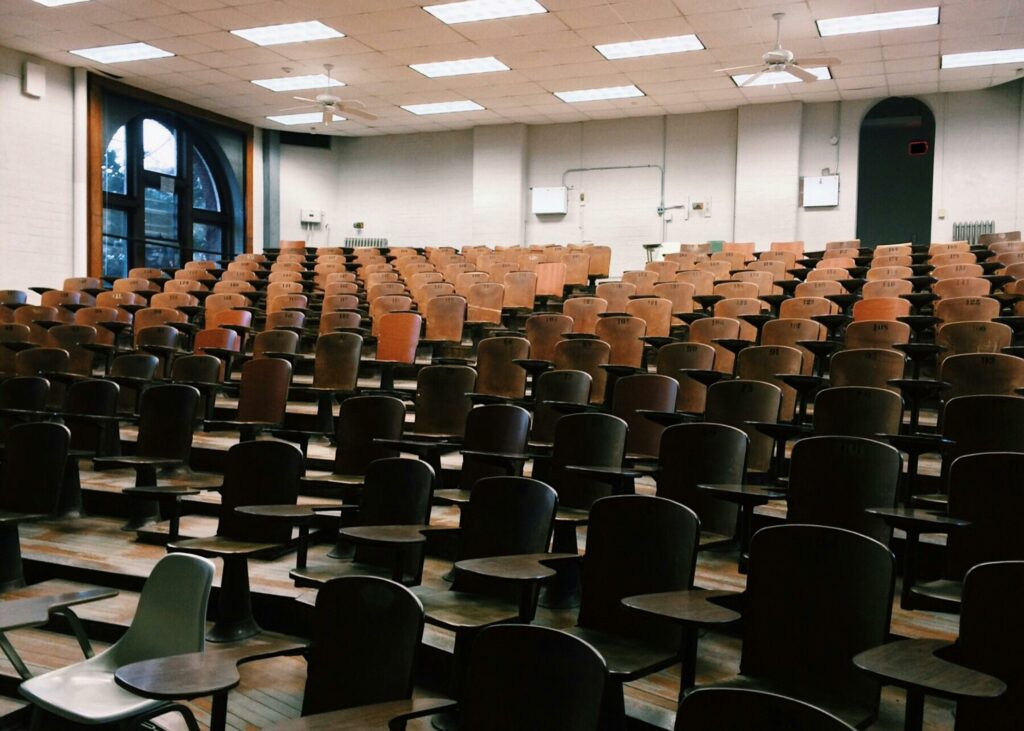“We don’t want Wikipedia students, but students who are able to know what they are talking about and really get into it.”
Jeff Hopkins Founder and Co-Principal of the Pacific School of Innovation and Inquiry
Summary (What)
Jeff Hopkins, the founder and co-principle of PSII (Pacific School of Inquiry and Innovation) spoke about the philosophy behind the school, the inquiry process, and the day-to-day workings of PSII. I found this talk incredibly interesting because it gave context and details for a school based on inquiry, which is something I have wanted to know more about since I decided I wanted to be a teacher before ever applying for this program.
Jeff explained the philosophy around PSII and the reason he founded it. He wanted to contextualize learning, harness the power of being with other learners, and integrate emotion and cognition (this is so overlooked in traditional schools). In order to succeed with these goals, Jeff knew that learners would need to be able to self regulate. On campus there are spaces where students can take themselves to be in a quiet and non stimulating environment until they are ready to return to the company of other learners. Jeff also highlighted the importance of learner agency. The teachers at PSII are transparent and open about what they need to do to graduate and, instead of the teacher designing programs to get the students there, the students are part of the process of deciding how they want to meet those requirements. I think this is an incredibly valuable way of teaching students how to plan and organize themselves and is a skill they will benefit from long after graduation. This gives them the skill to plan and the ability to learn how to pivot when things do not go the way they think they will. This is another big part of the work PSII is doing, creating perseverance in the students.
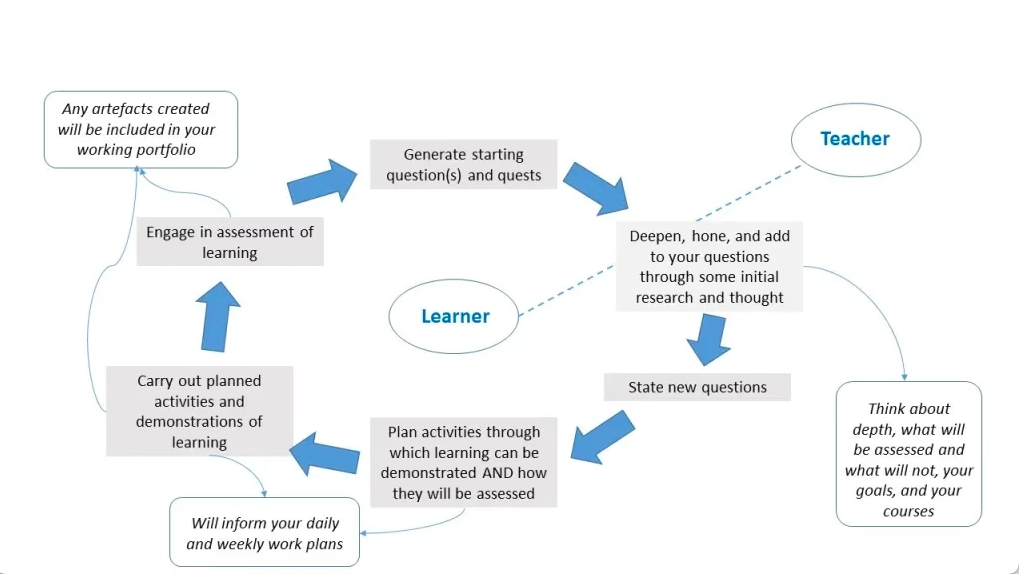
Jeff spoke in detail about the inquiry process at PSII (shown in the image above). This process personalizes the curriculum for each student. In this process, each step of the learning is assessed, not just the end result. Their focus is on showing the work they are doing and less on the product. In traditional schools the product is usually the thing that is important for students to get a grade. Here, the teachers focus on emphasizing the importance of the journey and how they learned as they went along. Assessment “of, for, and as learning” as Jeff put it.
I found myself confused about how the day to day routine was structured at PSII. Luckily I had that question answered when Jeff spoke about how the teachers provide lessons during the day for groups of students that apply to the thing they are researching at the time. Each lesson and activity is posted in a google calendar that is accessible on their website. This colander posts events like ASL and Spanish meetings, Lab Times, important meetings for senior students, and many other things.
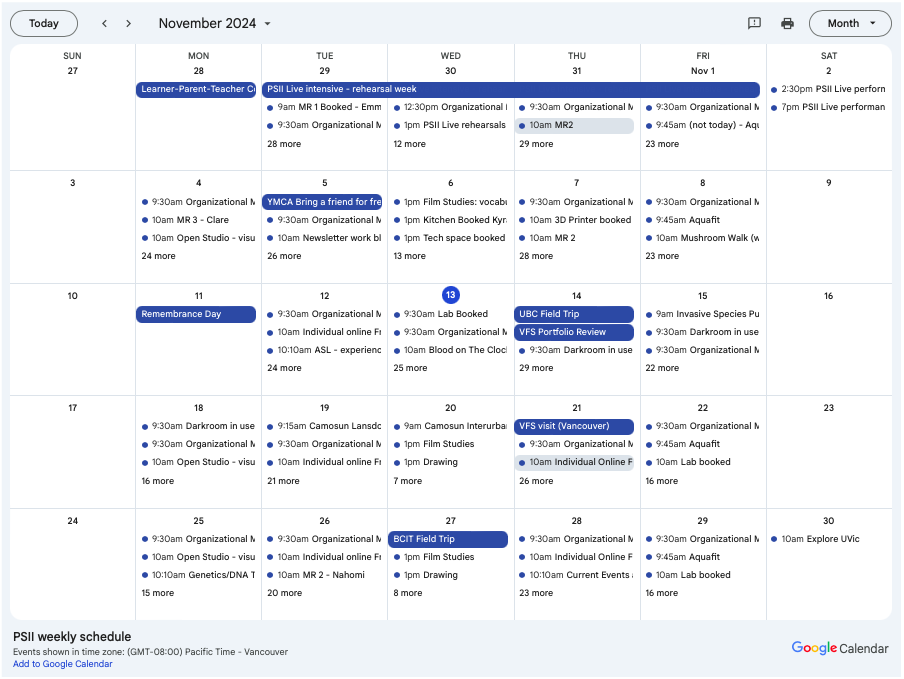
Response (So what?)
This school and our in-class presentation reminded me of the conflict I have been experiencing in this program and presented one of many solutions. My issue with current schooling is its structural inability to work with students to create interest and relevance. I know far too many people who live with the idea that they are “dumb” because the school system they went through made them feel that way. I think that any system that makes children feel this way, yet is still required for students to attend, is fundamentally broken. I avoided being a teacher for a while after my undergrad for this reason, I do not want to contribute to a system that is doing this. Jeff reminded me that there are ways around this and other options for success.
I listened to a podcast recently while doing research for another project. It is from the EduCrush podcast hosted by Natalie Verdabasso doing an interview featuring Starr Sackstein. This podcast speaks to the practise of releasing more control of the assessment process to the students that are being assessed. Starr believes that when teachers feel the need to control the entire teaching and assessing process, it is because they feel that their students are incapable of taking responsibility for their own learning. At the end of the day, thinking like this can not be helpful for students because it is not teaching them to take control of their own learning and being life-long learning. Starr believes that trusting your students can go a long way.
I think this idea of inquiry and less control of assessment is incredibly relevant for students who feel unseen in the school system and emerge with a lack of education (because the curriculum did not relate to them) and a lack of self-esteem and confidence. At the end of the day, not only was this system unhelpful for them, it was detrimental.
What now?

I have not had the chance to yet, but I plan to visit PSII. I feel so much hope in the work they are doing and I believe that they are headed in the direction of true and successful change to the way people have been doing education since the time of the one room school building.
Since this meeting I have found myself researching similar independent schools and the more I learn, the more I see myself as a future employee of one of these schools! For the rest of this program I can envision myself looking for places to insert what this has begun to teach me. Projects, presentations, and practicum are opportunities for me to practice and continue to learn this style of teaching.
